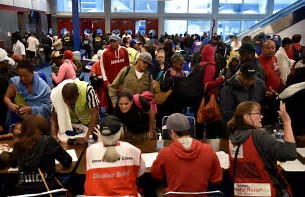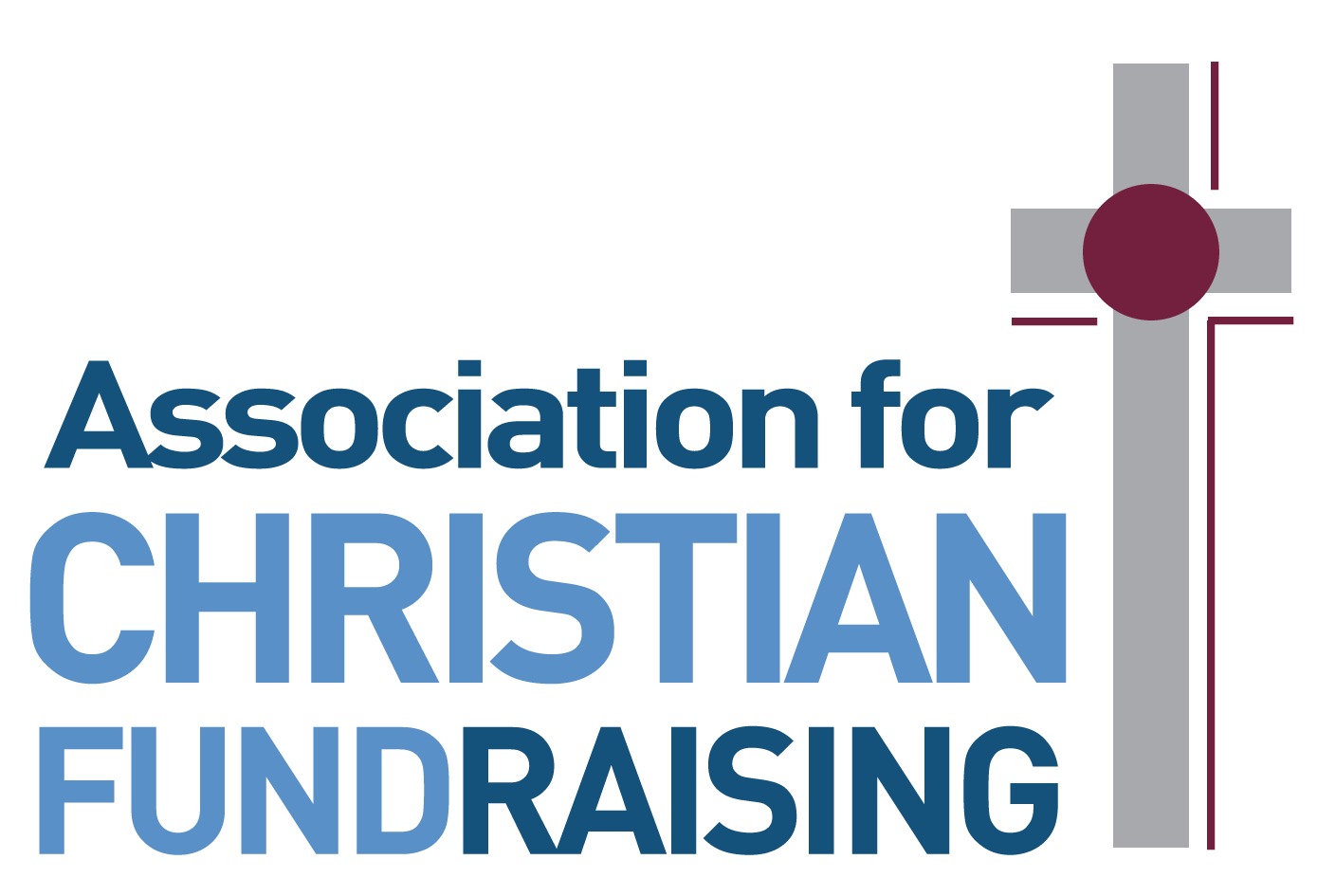Responding to Disasters: One Fundraiser’s ReflectionsOctober 2017
Bethany Krepela
August 26: 16+ inches of rain in less than 4 hours here … with forecast for 6 more hours of the same rain rates. The streets in our subdivision are filling up, a car across the street from us is flooded past the floorboards … 
August 27: I'm mourning the human calamity that #Harvey has become. The loss of life is only starting to be tallied. Next will be the economic disaster. Thousands upon thousands of families will be facing unprecedented flooding without flood insurance. August 28: Just. Lost. Power. August 29: #HurricaneHarvey is now causing catastrophic and unprecedented flooding in the greater Houston area … August 30: I had the privilege of purchasing the first round of emergency aid gift cards tonight …Your support is bringing tangible relief to the victims of Hurricane #Harvey. We will start distributing tomorrow! September 28: We were blessed with visitors from our LCMS Urban & Inner City Mission office in St. Louis … If you would like to partner with us in our mission to bring help and hope to those who have no resources we welcome your prayers and gifts … Facebook excerpts from Matthew Schultz, ALDE member and Interim President/Chief Operating Officer for LINC International in Houston. Nearly two months after images of Hurricane Harvey made international news, organizations are still hard at work to undo damage and bring lives back to “normal.” While Harvey is just one of many recent disasters, parallels can be applied as we as concerned citizens and Christians seek ways to help in a manner that truly and efficiently helps these organizations and people impacted. “People tend to respond to dramatic images they see on TV — houses in a pile of twigs, neighborhoods burned down from a wildfire, people being rescued by boats,” said Matthew Schultz in an early October interview. “That’s all real, but that’s not the entire story. Seeing it now in Puerto Rico, there it’s far beyond damaged. It’s when you have infrastructure that’s not functioning that the economy grinds to a halt, which creates a secondary disaster.” Schultz works for LINC International and LINC Houston, a network of local Lutheran Church—Missouri Synod churches that have joined together in a common mission to impact the city of Houston with the love of Christ. When the danger of the impending storm became evident, Schultz shut down LINC offices and sent staff home. As soon as the organization knew the scope of Harvey, they put their action plan into place. LINC has offices around the country, and a staff member living in California updated the website to communicate LINC Houston’s needs and plans. “People came out of the woodwork to help their neighbors,” said Schultz. “Private citizens and fishing boats were the backbone of the rescue efforts.” At one point, Schultz and his wife ventured out in their high-clearance vehicle to check on some of LINC’s properties and had to pull over to let 60 pickup trucks, fishing boats in tow, pass them. They were game wardens from Louisiana, responding in an organized effort. Schultz added that it is generally not safe for unofficial groups to show up to help, as they may create more harm than good by interfering with official emergency management plans. Instead, those interested in serving as responders should preregister with a local agency and receive training in advance. For LINC Houston, the key to an effective response to Harvey was forming partnerships in advance, such as its partnership with the Houston Food Bank. HFB distributed food to hundreds of families each day at LINC’s locations following the hurricane. When asked what the best thing is for people to do after a disaster, Schultz said, “Give funds! People love to fill trucks with food and water and drive down, but a lot of logistics are required to distribute donated goods. These sorts of needs are better handled at the local level.” One way LINC Houston gave people a more tangible way to help was to ask for donations of gift cards for Walmart and Home Depot. These gift cards were distributed to families affected by flooding to be used for basic household needs, cleanup supplies, sheetrock, and related items. This is particularly helpful to those whose homes were damaged or destroyed and do not have flood insurance, a common circumstance when living on a plain with only a 0.1% chance of flooding. Looking ahead, volunteers will be crucial, as “every volunteer hour is a contractor they won’t have to hire.” Schultz encourages service and church groups to consider coming at times other than spring break, if possible. While the immediate needs of cleanup and providing food, clothing, and shelter are necessary, full recovery is a lengthy process. Schultz projects that recovering from the aftermath of Hurricane Harvey will take more than four years: “National media has moved on, but the need is still there.” To learn more about LINC Houston’s Harvey Relief Fund, visit http://linchouston.org/relief. Sidebar: Have you been impacted by Harvey, Irma, the California wildfires, or another disaster? What have you found to be a good way to involve people in responding, much like the gift card idea? Share your story and prayer requests on ALDE’s “SPARK Newsletter Discussion” Circle. Click here for a short training video, or log onto your account at www.alde.org today. Bethany Krepela is an ALDE Board Member and Major Gifts Officer with Fraser in Richfield, Minnesota. |

